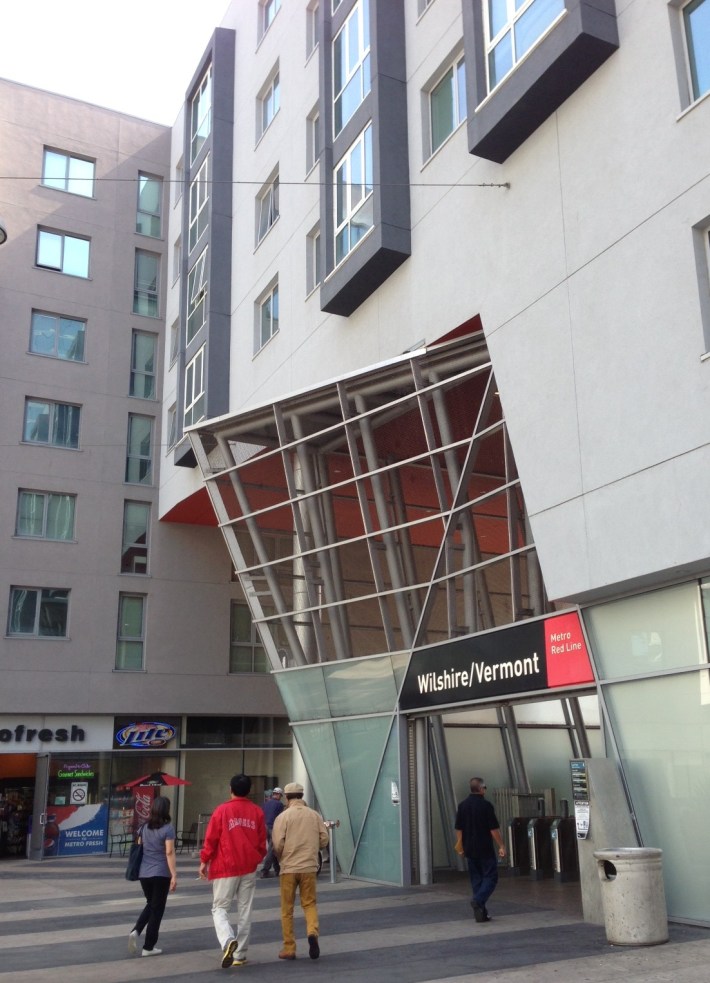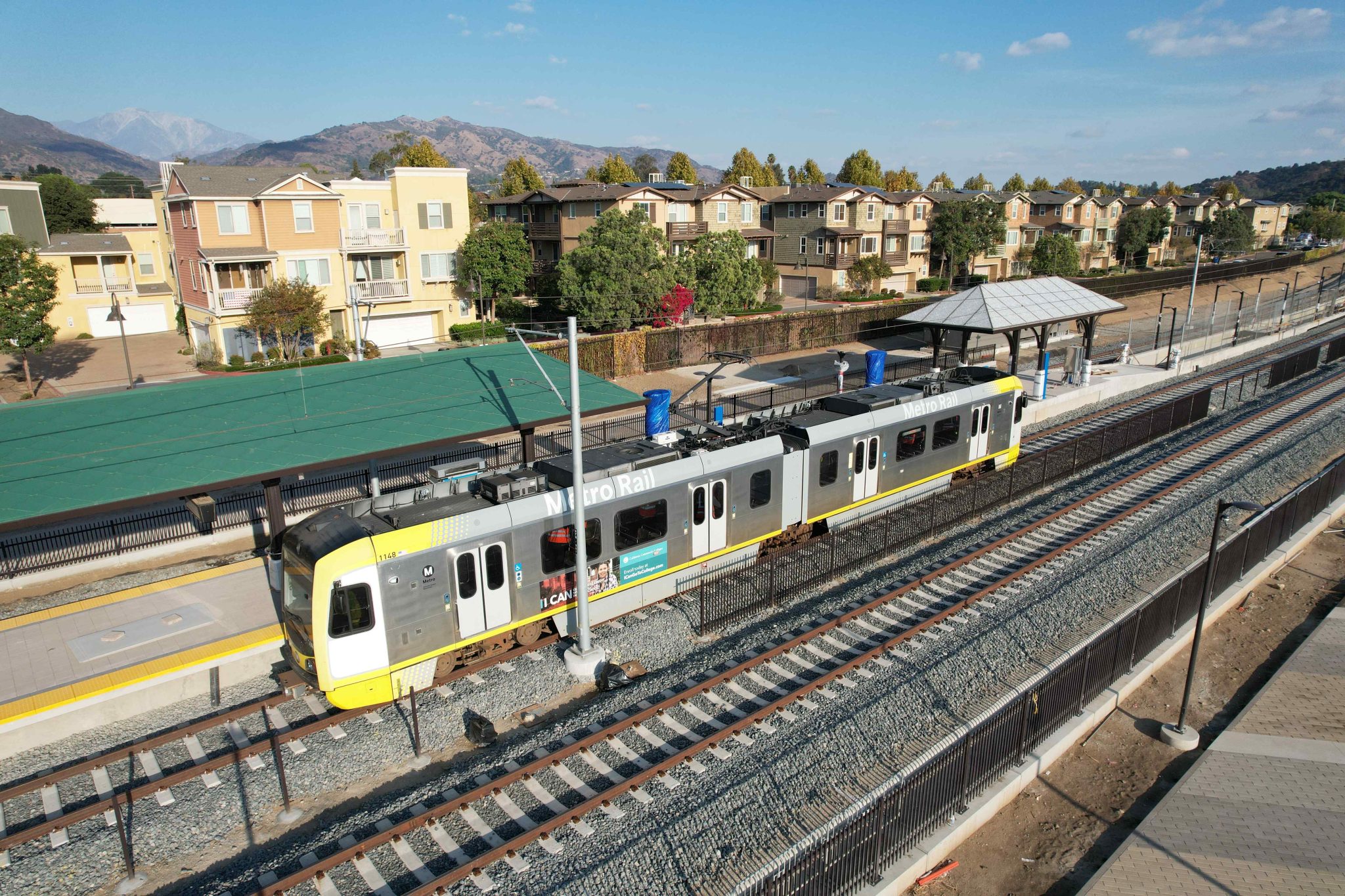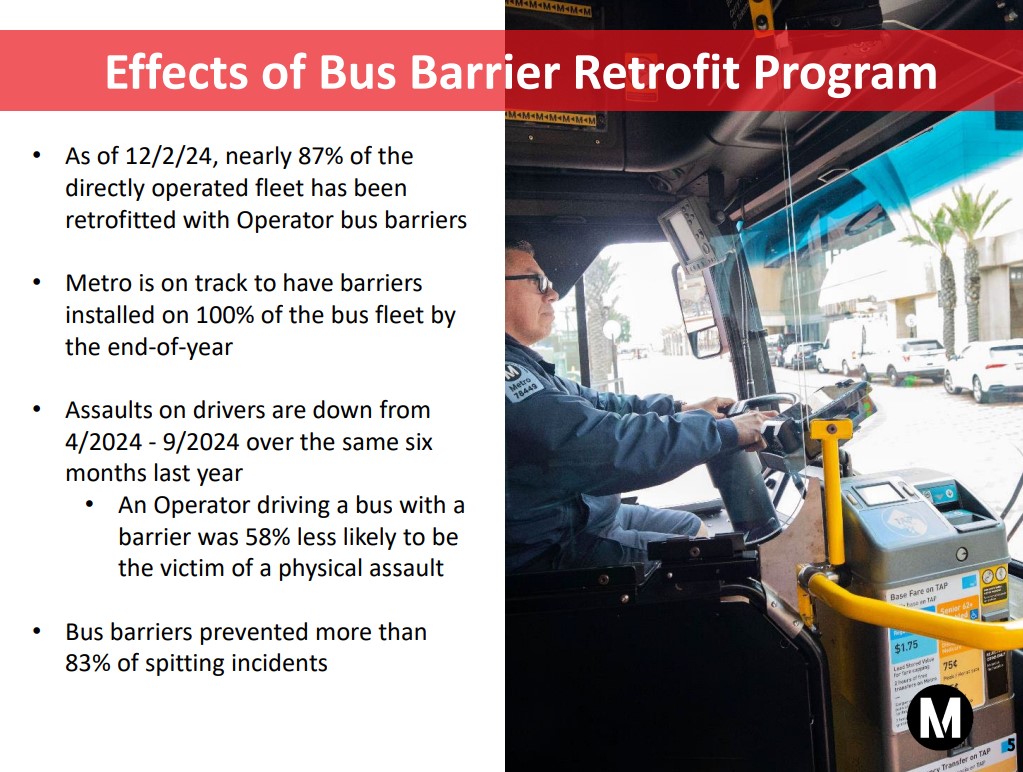
At this morning's Metro Board of Directors meeting, County Supervisor and Metro Board Chair Mark Ridley-Thomas shepherded the passage of two worthwhile motions that advance local livability. The motions are detailed below:
Community College Student Passes
The board unanimously approved a Ridley-Thomas motion that directs Metro's CEO to report back in 60 days regarding current college TAP programs and the feasibility of piloting a "Universal Community College Student Transit Pass Program." Benefits of these types of programs include increased transit ridership, reduced driving, and reduced traffic congestion.
It is not clear how student passes would be funded, though the motion includes a number of possible funding options:
In addition to the “opt-in” increase in student registration fees, the costs of such a program could be subsidized by the college, as it will reduce parking demands. In addition, Metro could solicit additional resources through the South Coast Air Quality Management District’s Mobile Source Air Pollution Reduction Review Committee. Later this Fall, the Metro must also provide a proposal to the State of California on how we propose to spend approximately $30 million of Greenhouse Gas Reduction Fund/Low Carbon Transit Operations Program revenue that is expected to be allocated to the agency through the State’s Cap and Trade Program; a revenue source that is anticipated to grow in the coming years. Given the focus on increasing ridership, this may also be a viable funding source for a Universal Pass program.
Transit-Oriented Housing/Business Loan Fund
As a result of a November, 2014, motion authored by then-Chair L.A. Mayor Eric Garcetti, as well as the leadership of new CEO Phil Washington, Metro is stepping up its involvement in affordable housing. Among recent developments on this, Metro has upped its targets for affordable housing in joint development projects, and retooled its development policies to allow discounted land prices to incentivize affordability. In March, Metro set aside $10 million ($2 million per year for five years) for a loan fund primarily supporting transit-oriented affordable housing. The way this fund will work is still taking shape.
Ridley-Thomas, along with co-authors Garcetti, Jacquelyn Dupont-Walker, and Sheila Kuehl, put forth a motion that clarifies how the already set-aside funds will include loan support for transit-oriented small businesses. Specifically, today's motion sets aside $500,000 of the overall $10 million for business loans. Loans are directed to "community-based retail tenants within one and one-half mile of transit corridors."
Similar to concerns over Metro's support for housing, some directors were critical of the motion as too broad for Metro's transportation mission. Director and Glendale Mayor Ara Najarian criticized the motion as involving Metro in "banking." Director and Lakewood Councilmember Diane DuBois asserted that Metro should only provide business support during construction. Ultimately the motion passed 9-1-1 with Najarian against and DuBois abstaining.
Additional Metro Board actions from today recapped at The Source.




